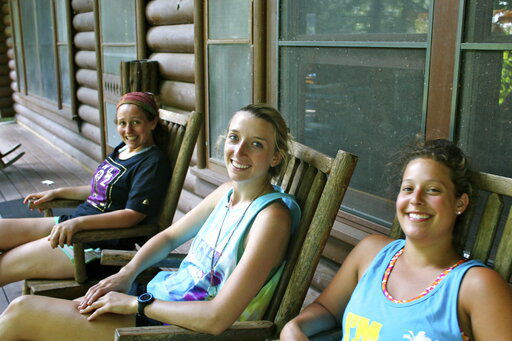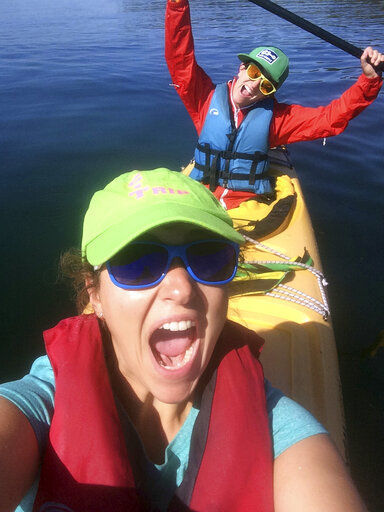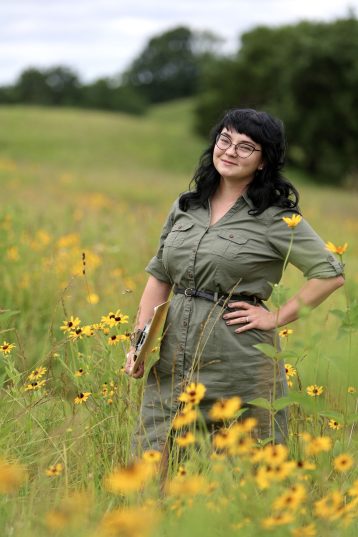Whenever I send out a resume, I am skeptical about what the words “overnight camp counselor” might mean to the person reading it. What do people who have not gone to summer camp think my five summers as a counselor communicate about me? Do they find it silly I even included it?
To me, it is one of the most significant pieces of my work history. It communicates that I am hard-working, adaptable, creative and independent. A problem solver who has had to deal with my fair share of stress. It says that having worked in a 24/7 environment, I can be “on” for extensive periods of time. That I am capable of managing my own needs and the needs of others, simultaneously. That I know how to be positive in the face of difficulty, and how to guide others through difficult situations. It says I can both lead and be a team player.
“The great thing about overnight camp counselors is that they have actual, real, valuable skills,” says Michael McCutcheon, a career coach at Wanderlust Careers in New York City. “Like the ability to work with people from all sorts of backgrounds, the ability to hold the attention of antsy audiences, outside-the-box thinking.”
Overnight camp counselors bring a myriad of qualities that can’t be taught during onboarding or professional development seminars — qualities that take months or even years to engrain.
The friends I grew up with at camp, both as campers and counselors, now work in very different fields, yet in some form we all seem to utilize the skills camp gave us.
Hillary Handler is a genetic counselor and a PhD student in neuroscience. She says she worked harder during her five summers as a camp counselor than she has in any job since.
“It’s a 24-hour job that just comes at you and comes at you,” she says.
In science, Handler explains, you have to be OK with failing again and again and still persevering toward your goal, trying new ways to achieve it. Camp, she says, taught her persistence.
Handler believes the skills she gained working at camp may outlast all the others. Science is always changing, she says, and what you learn in a classroom or lab could end up obsolete in a year. Camp, on the other hand, gave her the motivation, self-determination and people skills she will need throughout her career.
Ann Tobias, an MBA student at Yale and a former consultant, spent four summers as an overnight camp counselor and believes employers should understand the scope of the work — the difficult task of keeping campers safe and happy while simultaneously acting as their role model. Knowing the seriousness and importance of role modeling, she says, is a strong quality in a camp counselor.
Tobias also urges employers to take references from camp directors seriously.
“A camp director knows who their high performers are and who is making their life easier or harder,” she says. “It’s a high-intensity 10 weeks or so, and there are no secrets at camp. There’s no hiding your paperwork. They know who does a good job and who doesn’t. Those are pretty meaningful references.”
Sally Cohen, now a lawyer at a high-powered firm, says the round-the-clock nature of being a camp counselor prepared her well for her job demands. At camp, she explains, “Just because you’re asleep and it’s 2 a.m. doesn’t mean you won’t be called upon to do something.”
She also says camp taught her how to work with a diverse group of people. Camp staff often comes from around the world, and must learn not only to work together but to live together.
Since employers who were not camp counselors may not appreciate these skills, Judi Lansky, president and founder of Chicago-based Lansky Career Consultants, says job seekers should clearly communicate them, whether on the resume, in a cover letter or in an interview.
McCutcheon agrees, and says that too often applicants do not take advantage of their cover letter as an opportunity to tell their story.
“Someone with a rich past like overnight camp can use this as an opportunity to thrive,” he says.
Overnight camp counselors know what it is to be an energetic, positive best friend and also a comforting, risk-managing, responsible role model. They sing songs through rainstorms and comfort crying children in the middle of the night. They provide fun and smiles even when they are exhausted or upset or missing someone. Camp counselors are hard-working; they are resilient; they are strong.
Hire them.















